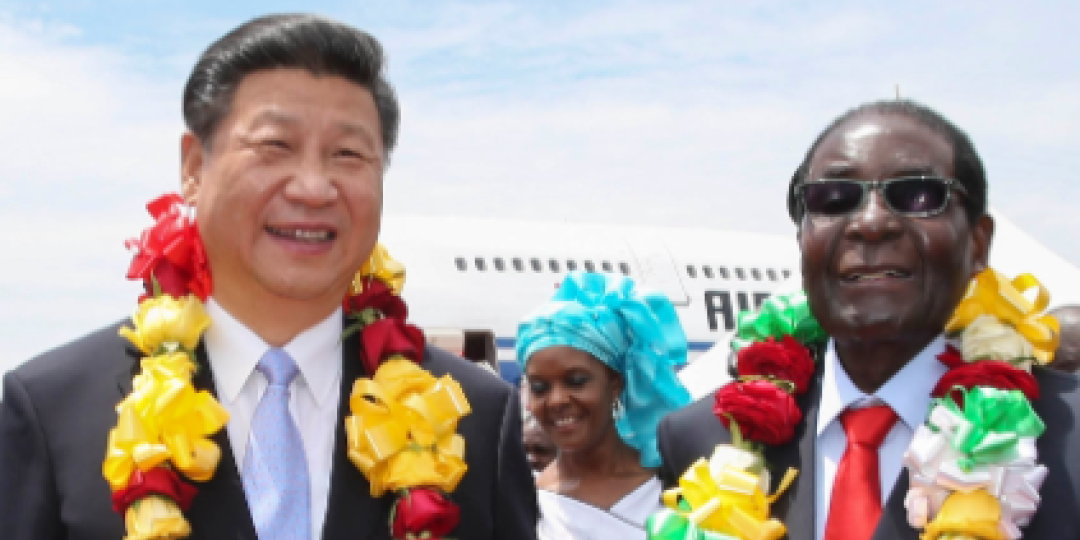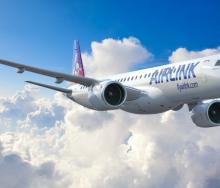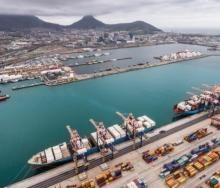From dept-trap diplomacy to labour colonisation, China’s role as an investor in the world’s emerging economies has elicited sporadic scrutiny.
An article in Financial Mail (FM) tells the story of Kelvin Chimusoro, a driver for one of Zimbabwe’s small haulage companies, who spends most of his time idling at home.
This is because Chimusoro’s employer, like many others in the industry, is struggling to find work.
Whereas he used to put in long hours across the length and breadth of sub-Saharan Africa, the long-distance trucker is one of many who has found himself outmanoeuvred by Chinese fleet owners muscling in on Zim’s transport sector.
The late dictator, Robert Mugabe, found short-term respite in China rushing to his country’s aid following Western sanctions for destructive and often violent land dispossession in the agricultural sector, but the long-term consequences of a crippled economy have been brought to bear on the likes of Chimusoro.
FM writes that Chinese investment in Zimbabwean mining, particularly in lucrative lithium, coal, iron ore and chrome operations, flowed in.
For years local trucking companies thrived on contracts from mines and factories. But this began to slow when the Chinese began moving in their own logistics systems and their own trucks. Independent drivers and rival haulage companies now find it hard to compete.
Some of the big trucking firms such as Whelson, Colbro, Cargo Carriers and Strauss, have been able to roll with the punches, but the smaller companies, in which owners sometimes have only one truck, are struggling.
Plying the once-busy route from Harare on the Beira Corridor to Zim’s closest port in Mozambique paid well, but there is now a risk involved.
Previously a driver like Chimusoro could make the journey to the coast easily enough, but now needs to wait up to two weeks for a return haul to make the journey economically viable. In previous years the turnaround would be about three days.
Veteran driver Itai Chimedza recalls a time when trips between Harare and Beira were brisk and frequent.
Now the return trip of about 1 120 kilometres was a nightmare, he said.
He told FM he now spent “weeks on end without work”.
Anthony Chaka concurs.
The logistics expert and industry veteran has a gloomy outlook for small transport businesses.
“It’s not a viable idea to own a truck right now,” he said. “It’s a loss. [The] Chinese are capturing the industry and monopolising it.”
Chaka said Chinese operators were deliberately pushing out small players.
“They pay you after 40 days. Automatically they are kicking you out.”
Once the busy Harare-Bulawayo route paid $1 200; now it paid only $600, he said
“The Hwange-Bulawayo route paid between $750 and $800. Now it’s only $300-$330,” he told FM of the 335km journey from Zimbabwe’s northwest near Victoria Falls to the country’s second-biggest city.
Chaka, who works for a Chinese firm, said local truckers would soon be out of business. Part of the problem for the locals, he said, was that Chinese trucking companies could get tractors and trailers without putting down a deposit, and the loan term was longer. This allowed them to cut their rates.
“Indigenous operators with a bit of money continue to operate,” he said, but some Chinese truckers carried more than the allowable load and tolls had been increased to $20 on some routes.
According to the article, many local truckers who can’t afford the costs have just parked their lorries and are at the mercy of the Chinese companies.
“I ended up seeking a job at a Chinese company. Hundreds of drivers have come on board too in the past few months,” Chaka said. But salaries are very low. “$300 and less,” he added.
“We can’t complain, because they are the only ones [that are operating].”
The Chinese transport companies are thriving. Zhong Jiang, a company that is invested in coal mining, is hiring 500 drivers. A few indigenous players would be able to survive by getting jobs, said Chaka. There is the option to go beyond Zimbabwe’s border, “but you burn a lot of rubber”.
He says a friend who bought a truck from the UK tried to operate locally but failed and now wants to try his hand at cross-border routes.
And it’s not only Zhong Jiang that is running its own fleet. Dinson, a Chinese company running a smelting plant in Selous as well as a coal mine in Hwange and a coking coal plant and an iron ore plant in Chivhu, operates its own fleet of about 600 trucks.
The local truckers are “under siege and captured”, Chaka said.
He told FM: “The Chinese don’t sign contracts.”
He doesn’t have a contract even though he has been working for several months for a Chinese company.
Chinese companies operating in Zimbabwe had been embroiled in unfair labour practice disputes relating to workers not having protective clothing and working in unsafe conditions, Chaka said.
Zimbabwe-based economic analyst Rashweat Mukundu said that while Chinese investment had been a boost to Zimbabwe’s economy and had improved job creation, the investors tended to want to control the value chain from mining to transport and also preferred to “mine and transport mineral ore at the cheaper cost”.
He told FM: “Our challenge with such an investment is that our government has failed to come up with protective measures for the local commercial sector, especially transport, including the railways, which should be a key cog for mineral products that need significant transport.”
Mukundu said other countries asked investors to work in certain areas where huge capital investment was needed, such as mining, but when it came to commercial sectors and others, the locals had priority and preference.
“Unfortunately, because of the political connections between the [Zimbabwe] ruling elite and the Chinese, we have essentially failed to put in place measures that protect [local] industry and businesses.
“As a result, the Chinese have taken over transport and logistics businesses that should be left to locals.”
For Mukundu, this is a “politicised economic policy and not a commercial and national interest-driven one”.
He warns that whenever a government opts for politics over economics, as in Zimbabwe, it spells doom.
The collapse of Zimbabwe’s rail network, once the backbone of the country's transport and logistics sectors, could be traced back to years of mismanagement and underinvestment in the National Railways of Zimbabwe (NRZ), said Farai Muchineripi, a transport and logistics expert.
The NRZ, a parastatal similar to Transnet in South Africa, once moved the bulk of Zimbabwe’s goods and played a crucial role in facilitating trade within the country and beyond its borders. However, a combination of poor management, corruption and lack of capital investment led to a decline in efficiency, outdated infrastructure and frequent breakdowns, said Muchineripi.
By the early 2000s, the NRZ’s operational capacity had dropped dramatically, resulting in severe disruptions to the transportation of goods across the country.
The decline of the NRZ forced businesses to seek alternative means of moving cargo, and haulage operators stepped in to fill the void. The trucking business quickly adapted to the increased demand, providing a reliable way of transporting goods to various parts of the country.
Unlike the rail system, which was centralised and often inflexible, road transport offered door-to-door services and could navigate even remote areas, making it a more versatile option for businesses. This transformation led to a rise in the number of operators, which offered a lucrative investment opportunity in the sector.
At the height of this transition, Zimbabwean entrepreneurs began importing second-hand tractor heads from the UK and the US to establish or expand their haulage businesses. The imported trucks were relatively cheap to run and provided reliability on Zimbabwe’s challenging roads.
As a result, the country’s highways soon became crowded with fleets of these second-hand trucks, ferrying goods ranging from mining output to agricultural produce and everything in between. This shift significantly altered the country’s logistics landscape, making haulage trucks the primary mode of goods transportation.
The decline of the rail sector did not just affect logistics but also resulted in a missed opportunity for a more cost-effective and environmentally friendly transport system. Rail transport is traditionally more fuel-efficient and capable of moving large volumes of goods in a single trip, making it ideal for bulk commodities such as minerals and agricultural products. However, due to the railways’ collapse, the road haulage sector took over, leading to increased wear and tear on Zimbabwe’s roads, higher fuel consumption and noxious emissions.
Attempts to revive the rail sector through partnerships with private investors and foreign entities have been made, but progress has been slow, and the trucking business, now mostly Chinese-owned, continues to dominate.
Analysts say that until the rail network is fully rehabilitated, haulage trucks will remain the backbone of Zimbabwe’s logistics industry and carry the weight of the nation’s trade. – SOURCE: Financial Mail













